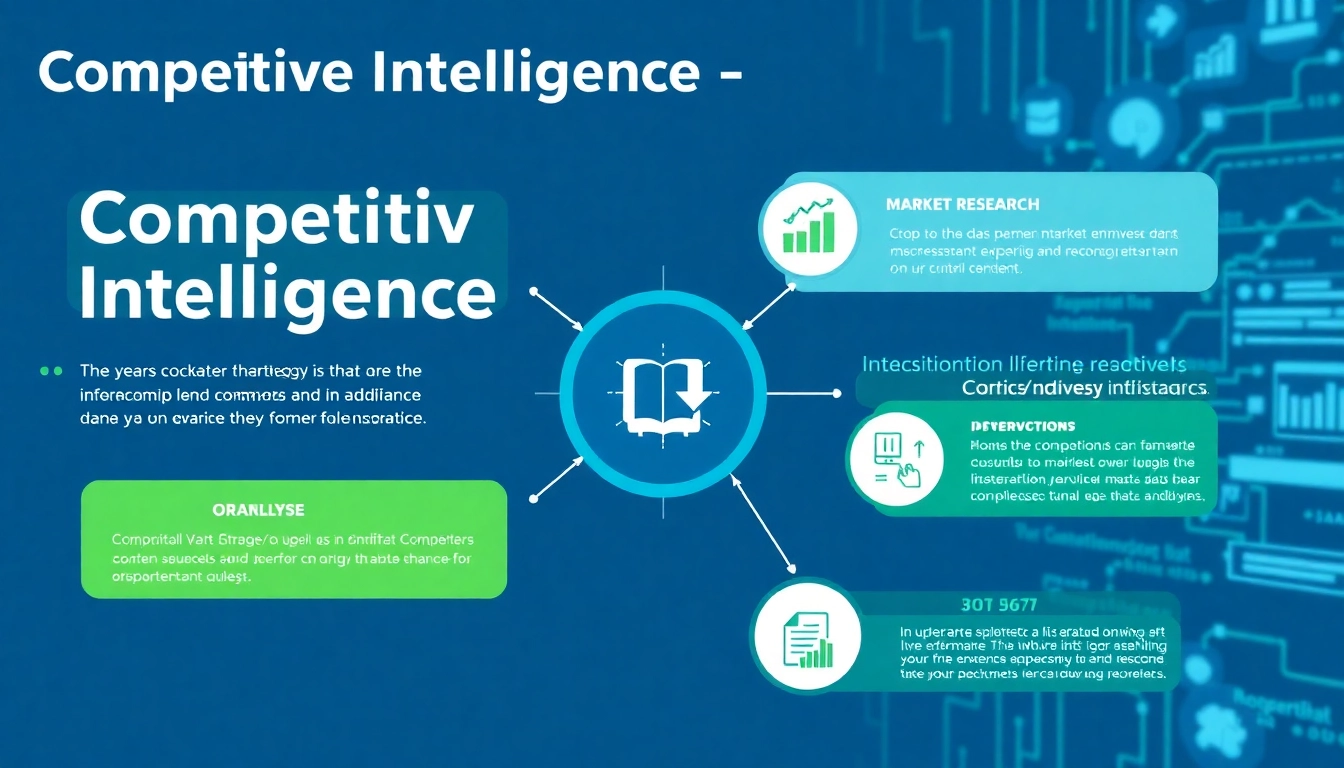Understanding AI Marketing Tools
In today’s rapidly evolving digital landscape, AI marketing tools have emerged as crucial assets for businesses aiming to optimize their marketing strategies and enhance customer engagement. These tools leverage artificial intelligence to automate marketing processes, analyze consumer behavior, and create targeted content, making them indispensable for modern marketers. This article delves into the world of AI marketing tools, highlighting their benefits, key players in the market for 2025, integration strategies, and predictions for the future.
What Are AI Marketing Tools?
AI marketing tools are software applications that utilize artificial intelligence technologies to assist marketers in various tasks. These tools can automate repetitive tasks, such as data analysis and content generation, allowing marketers to focus on strategic decision-making. Common functionalities of AI marketing tools include:
- Data Analysis: Tools that analyze large datasets to uncover insights about customer behavior and market trends.
- Content Creation: Software that generates marketing content, such as blog posts, social media updates, and email newsletters.
- Predictive Analytics: AI systems that predict customer behavior based on past data to enhance targeting and personalization.
- Chatbots: Automated conversation agents that engage customers, answer questions, and provide support.
Benefits of Using AI in Marketing
Incorporating AI marketing tools into your strategy can lead to numerous benefits, including:
- Increased Efficiency: AI tools can automate tedious tasks, freeing up time for marketers to focus on creative tasks.
- Enhanced Personalization: AI can analyze user data to deliver personalized experiences, improving customer satisfaction and loyalty.
- Better Decision Making: With powerful analytics capabilities, AI tools can provide actionable insights that drive better marketing decisions.
- Cost Savings: By automating workflows, businesses can reduce operational costs and improve return on investment (ROI).
How AI Tools Enhance Customer Insights
Understanding customers is at the heart of effective marketing, and AI tools significantly enhance this capability through:
- Advanced Segmentation: AI can identify subtle patterns in customer data, allowing for more precise market segmentation.
- Behavior Predictability: Predictive analytics can forecast future buying behaviors, enabling marketers to tailor their strategies accordingly.
- Sentiment Analysis: AI tools can gauge customer sentiment from social media and online reviews, helping businesses respond proactively to customer needs.
Top AI Marketing Tools for 2025
As we look toward 2025, several AI marketing tools stand out for their innovative features and capabilities. Here are some of the leading tools to consider:
Leading Tools for Content Creation
Content is king in the digital marketing landscape, and the following AI tools excel in streamlining content creation:
- Jasper: A robust AI-powered writing assistant that can generate marketing copy, blog posts, and more, tailored to specific tones and audiences.
- Copy.ai: This tool utilizes natural language processing to help marketers create high-quality marketing messages quickly and efficiently.
- Surfer SEO: An AI tool that combines content optimization with keyword research, improving SEO performance with data-driven insights.
AI Tools for Social Media Management
Effective social media marketing requires efficient management, and the following tools can help:
- Buffer: A scheduling tool that uses AI to suggest posting times and content ideas based on audience engagement metrics.
- FeedHive: This social media tool focuses on content recycling and conditional posting strategies to maximize engagement.
- Predis: An AI-driven tool that assists in generating social media content and ads based on audience insights, ensuring higher relevance.
Analytics and Reporting AI Solutions
Analytics is central to understanding marketing effectiveness, and these tools provide robust solutions:
- Google Analytics 4: The latest version of Google’s analytics platform incorporates predictive insights powered by machine learning, providing deeper visibility into user behaviors.
- Tableau: An advanced analytics platform that uses AI-driven visual analytics to present complex data in an easily digestible format.
- Crazy Egg: This tool uses AI to analyze user interactions on websites, offering visual reports on where users click and how they navigate.
Implementing AI Tools in Your Marketing Strategy
Integrating AI marketing tools into your existing marketing strategy involves careful planning and execution. Here are steps to ensure effective implementation:
Steps for Effective Integration
- Define Your Objectives: Clearly articulate what you aim to achieve with AI, whether improving efficiency, enhancing personalization, or boosting ROI.
- Research Tools: Evaluate different AI marketing tools against your objectives, considering factors like ease of use, pricing, and customer support.
- Train Your Team: Provide training for your team to ensure they understand how to use the tools effectively and integrate them into their workflow.
- Monitor and Optimize: After implementation, continuously monitor performance metrics to identify areas for optimization.
Common Challenges and Solutions
While integrating AI marketing tools can be beneficial, several challenges may arise:
- Data Overload: The volume of data generated can overwhelm teams. Solution: Implement good data management practices and focus on key metrics that align with your goals.
- Resistance to Change: Employees may be hesitant to adopt AI tools. Solution: Highlight the efficiency benefits and provide comprehensive training sessions.
- Integration Issues: Incompatibility with existing systems can hinder effectiveness. Solution: Choose tools that offer robust integration capabilities and support.
Measuring Success with AI Tools
To determine the effectiveness of AI marketing tools, focus on measuring specific KPIs such as:
- Engagement Rates: Monitor social media interactions, email open rates, and website traffic to quantify engagement.
- Conversion Rates: Assess how well the AI tools impact lead generation and sales conversion metrics.
- ROI: Calculate the return on investment for the resources spent on AI tools, factoring in time saved and revenue generated.
Future of AI in Marketing
As we look ahead, the integration of AI in marketing is poised to evolve significantly. Here are some trends and predictions for 2025 and beyond:
Trends to Watch in 2025
Several key trends are expected to shape the future of AI in marketing:
- Hyper-Personalization: AI’s ability to leverage vast amounts of data will enable hyper-personalized marketing experiences tailored to individual preferences.
- Voice Search Optimization: As voice search continues to grow, AI tools will evolve to provide content strategies that cater to voice-activated platforms.
- More Advanced Chatbots: The next generation of chatbots will utilize natural language understanding to create even more personalized and contextually aware customer interactions.
Potential Impact on Marketing Jobs
The rise of AI in marketing may bring about changes in job roles within the sector. While some tasks may be automated, new opportunities will arise:
- Data Analysts: Increased demand for professionals who can interpret AI-generated data analytics.
- AI Specialists: Roles focused on the implementation and optimization of AI technologies within marketing strategies.
- Creative Strategists: As AI automates various tasks, there will be a greater emphasis on creative thinking and strategy development.
How to Stay Ahead of the Competition
To ensure your business remains competitive in an AI-driven market, consider the following strategies:
- Continuous Learning: Keep your skills and knowledge up-to-date with the latest AI trends and technologies.
- Experiment with New Tools: Always be willing to explore and test new AI tools that may enhance your marketing efforts.
- Foster a Culture of Innovation: Encourage your team to test new ideas and approaches, leveraging AI capabilities to their fullest potential.
Case Studies of Successful AI Marketing Strategies
Examining real-life examples of businesses that have successfully integrated AI marketing tools can provide valuable insights:
Small Business Success with AI Tools
A small e-commerce store implemented AI-driven product recommendation engines, resulting in a 25% increase in average order value. By analyzing purchase history and browsing behavior, the software suggested relevant products that customers might like, enhancing the shopping experience.
Enterprise-Level Implementation
A large corporation adopted an AI-powered marketing automation platform to streamline its email marketing processes. By segmenting its vast email lists and personalizing content for different audience segments, the company saw a 40% increase in open rates and a 15% uplift in conversions.
Lessons Learned from Notable Campaigns
Brands that effectively employed AI tools often highlighted the importance of data quality and respecting customer privacy. A notable online retailer that failed to implement adequate privacy measures resulted in customer backlash. This serves as a reminder that while AI can enhance marketing efforts, ethical considerations must guide its use.



